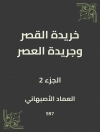In ‘The Satires, Epistles, and Art of Poetry, ‘ Horace emerges as a masterful voice of the Augustan age, blending humor with philosophical insight. This compilation showcases his sharp wit and keen observations of Roman society, particularly through the satirical lens that critiques human folly and moral failings. The elegance of his Latin prose and verse is interlaced with a refined, didactic tone, inviting readers into a world where personal reflection meets societal critique. Horace’s literary style is characterized by a seamless integration of lyrical beauty with ethical considerations, highlighting the tensions between individual desires and communal expectations in a rapidly changing Rome. Born in 65 BCE, Horace was not just a poet but a keen observer of the socio-political climate of his time, shaped by the aftermath of civil war and the consolidation of imperial power under Augustus. His personal experiences, from his freedman status to his education in the culturally vibrant cities of Athens and Rome, deeply influenced his poetic voice. Through his works, Horace sought to communicate the essence of self-improvement, the value of moderation, and the art of living—tenets that reflect both personal and philosophical journeys. Readers are invited to delve into the profound layers of irony, wisdom, and charm embedded in Horace’s writings. This anthology not only provides a glimpse into the complexities of human nature and societal norms but also serves as a timeless guide on governance of self and an appreciation of art. Ideal for scholars and casual readers alike, Horace’s reflections remain strikingly relevant, making this collection an essential addition to any literary canon.
Giới thiệu về tác giả
Quintus Horatius Flaccus, known internationally as Horace, is one of the towering figures in Roman literature. Born on December 8, 65 BCE in Venusia in Southern Italy, he came of age during Rome’s tumultuous transition from Republic to Empire. Horace was the son of a freedman and progressed from modest beginnings to become one of the leading poets of his time, enjoying the patronage of Maecenas, a confidant and minister to Emperor Augustus. His body of work includes ‘The Satires, Epistles, and Art of Poetry of Horace, ‘ which continue to be central texts for the study of classical literature and the culture of the early Roman empire. Although varied in form and topic, Horace’s oeuvre is marked by its perspicacious wit, ethical seriousness, and an adroit melding of Greek literary form with the Roman spirit. His ‘Ars Poetica, ‘ or ‘The Art of Poetry, ‘ offers invaluable insights into the poet’s craft and has influenced literary criticism for centuries. As a lyric poet, his ‘Odes’ and ‘Epodes’ are masterful explorations of human emotions, politics, and philosophy, employing both subtle humor and deep introspection. Horace’s works remain essential reading for their artistic elegance and their commentary on human nature, and his maxims and aphorisms, such as ‘carpe diem, ‘ continue to resonate throughout Western culture.












